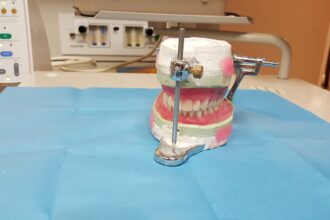Every once in awhile you stumble on a phrase that perfectly captures one of your principles – something you’ve been guided by, but have perhaps never verbalized quite that way – and this is one of those phrases: “If you can’t outspend, outteach.”
Every once in awhile you stumble on a phrase that perfectly captures one of your principles – something you’ve been guided by, but have perhaps never verbalized quite that way – and this is one of those phrases: “If you can’t outspend, outteach.”
Nate Kontny wasn’t talking about rare disease communities when he offered this advice in Fast Company. But it still works. In a space where audiences are limited, and budgets may be, too, finding ways to reach the right people with your message at the right time requires a slightly different approach than the one you would need in order to, say, get the word out about ibuprofen. You know what a headache is, after all, and you probably have some idea about how to treat it.
But in rare disease communities, people often know they are sick, but don’t know why. You may not have a name for your disease – or you may have a name but it’s the wrong one. Perhaps you know what disorder you have, but don’t know what the treatment options are. Or, there is no treatment yet, so your best hope is a clinical trial.
Because of this, rare disease patients and caregivers desperately want the information you have to share. What they want from you is this:
Help me understand
Rare disease patients and caregivers know that they have to be experts on their disease and they will dig right in to any clear and understandable information you offer – even if it’s on the HCP side of your site. MOD and MOA videos are in high demand, which is not surprising, given that YouTube now has 1 billion visitors each month. Video is also helpful for educating people living with rare diseases on treatment administration. Your job is to help your community get accurate information.
Help me live with this
People with rare diseases face innumerable challenges: symptoms they struggle with every day, the frustration of not feeling well and, at the same time, having to explain what’s going on to family, friend, and employers; financial challenges; physical challenges; and so on. There is no shortage of ways for you to help them: downloads, eBooks, trackers, apps, links to resources. Better yet, ask them what they need.
Help me cope
Emotional challenges are common. Living with rare diseases is stressful. It produces worry, anxiety, and sadness – and not just for the patient. Rare diseases impact the whole family; even the extended family. You can help by offering tools that simplify life for patients and caregivers, advice on managing stress, and real-life stories that remind them they are not alone.
Help me tell others about it
When you provide simple and clear information about the disease in a format that can easily be shared, you not only make it possible for community members to educate the people they care about – their friends, family, co-workers, and schoolmates – but you also help them get information out to physicians, improving diagnosis and treatment.
If your budget is small, it’s important to spend it wisely. Enlist the experts, facilitate the kind of peer-to-peer communication that allows patients and caregivers to teach each other. And remember, if you can’t outspend, outteach.
Image courtesy of Garry Knight on Flickr (CC/BY)







